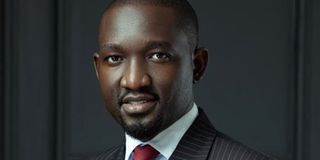Who owns the World Cup? “Fifa Uncovered” and the Qatar World Cup

IVAN OJAKOL
What you need to know:
Beyond the corruption in global football, what “Fifa Uncovered” teaches us is that football is no longer just "a game" or a sport, it has moved beyond just enjoying a kick about or being a way of maintaining fitness and good health, but has rather grown into a commercial behemoth.
“…Mr. Speaker, the World Cup does not belong to FIFA and it does not belong to the host nation, it belongs to everyone who loves football, shame on Fifa." Keir Stammer, British leader of opposition in reference to Fifa's latest crackdown on gay rights involving a ban of the "OneLove arm band".
Who owns the World Cup?
As has been the case since the grant of the World Cup hosting rights to Qatar in 2010, the negative press just won’t go away. Accusations of corruption in the ran up to the awarding of the said World Cup and the concerns over Qatar's human rights record are now almost a boring chorus.
This week, I watched a sizzling documentary on Netflix whose release was aptly timed to coincide with the World Cup dubbed, “Fifa Uncovered”. “Fifa Uncovered” gives insights into what has led to Fifa’s aggressive protection of its interests as this column has happed over the last couple of weeks.
Beyond the corruption in global football, what “Fifa Uncovered” teaches us is that football is no longer just "a game" or a sport, it has moved beyond just enjoying a kick about or being a way of maintaining fitness and good health, but has rather grown into a commercial behemoth.
The idealism that characterized football as a “global sport for the good” with Fifa, a body first formed by seven amateur European football organizations not even having a proper headquarter until the 1974 World Cup has long since won off. The documentary shows us that the likes of Coca-Cola, Adidas, and other commercial partners have been at the helm of the World Cup money bonanza for a long time.
The Qatar World Cup however seems to have Fifa bending over backward more than usual. A few days before the tournament began, Fifa announced that no alcohol would be sold in stadiums other than in some designated spaces more or less going against the interests of Budweiser, a Fifa partner and commercial sponsor of the World Cup since 1985.
Fifa often rides roughshod over the host country in ensuring that the commercial interests of its partners are protected. It will be interesting to see if Budweiser will go to Court after the tournament for breach of contract because inevitably, they have made a loss.
Politics and football are bedfellows. The 1978 World Cup in Argentina, a country ruled by a military junta was perhaps not only the start of controversial World Cups hosted in countries with not-so-glowing human rights records, but also spawned a new era of what was possible with “expanding the global game” and marketing the sport. States and politicians will now do anything if their countries have the means to host the global showpiece because it comes with certain indicators of social and economic progress. Football has become an arena of political theatre. It is now a deliberate state policy object as seen in the investments into PSG and Manchester City by Qatar.
It is the same politics that led the United States through its organs like the FBI to investigate and eventually crack down on Fifa in the aftermath of the awarding of the 2018 and 2022 World Cups to Russia and Qatar respectively. This was an unprecedented move that has since poked holes in Fifa’s claims to autonomy from nations’ legal systems.
There is also the small issue of the Adidas boss setting up a company, "International Sport and Leisure”, to which all of Fifa’s rights management was outsourced. Ugandan football people might be familiar with something like that.
So, who owns the World Cup?
Ojakol is a sports lawyer, partner at Matrix Advocates
and Lecturer at IUEA




